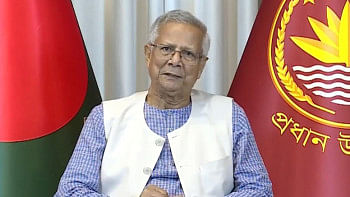ULFA leaders' arrests: Why the charade?
WE have had to absorb two very different versions of the arrest/handing over/surrender of several top Ulfa leaders from/by/Bangladesh to India, in the last seven days. Either there was lack of coordination between the concerned agencies of the two countries, or there was an attempt at one-upmanship on the part of the Indian intelligence to go public on the status of the Ulfa leadership who had taken shelter in Bangladesh. Even the Indian version varied day to day, compounding the confusion even more.
However, I for one would like to believe the statements of our ministers in this regard, at the risk of appearing to be a fool. Bangladesh has constantly asserted that it has nothing to do with the Ulfa leaderships' finding themselves all of a sudden in Indian custody. And, as the home minister has further affirmed, under these circumstances the question of push back does not arise at all.
If one were to take the statements of the Bangladesh ministers at face value, would it be out of place to inquire why the government of Bangladesh has not formally protested to India for the embarrassment it has caused to Bangladesh? Would one be wrong to ask what India's stake at giving varying versions of the event is? Our position has become even weaker by the statement made in the court by the arrested persons, that they were indeed, apprehended by the Bangladesh authorities inside Bangladesh.
The fact is that the people have not been given the entire truth in this regard. And as someone put it very aptly at a recent discussion meeting, there is bashfulness on the part of our government to be transparent and reluctant to come out with the real story. Why so?
Given the huge mandate that the current government enjoys, it is not only the expected but also the right thing to keep the people informed about its actions, particularly those that have to do with the nation's interest and security.
The Ulfa issue has been a thorn in the bilateral relationship between the two countries. It is a very sensitive internal issue for India, and something that has occupied its politics and its security forces for a long time. The stated policy of all our governments, past and present, has been that the territory of Bangladesh has not been, and shall not be, allowed to be used by any anti-Indian elements, whichever way they chose to define their organisation, and whatever maybe their aim, vis a vis the state and the government of India, to prosecute their objectives.
I have, in the past, suggested in these very columns that it cannot be a policy of the GOB to patronise Indian rebel or insurgent groups, because such a policy cannot be sustained and was bound to prove counterproductive in the long run. I am fully convinced, that such a policy, was never followed in spirit either by any government, and I do not believe that the grassroots elements of Ulfa were deliberately allowed to establish camps within the territory of Bangladesh.
However, having said that, one must admit that the possibility of Indian insurgent groups seeking shelter in neighbouring countries, including Bangladesh, to escape the push of the Indian security forces from time to time cannot be ruled out.
Therefore, one is at a loss to rationalise the present government's stand regarding the current episode. If it feels that our territory is not for conducting anti-state activity against another country, it is well within its right to take appropriate measures. With the popular support it has, the government should have taken the people in confidence and made it clear that the action it has taken regarding Ulfa leaders is in the best interest of the country. The impression one got was that the government itself was not sure that it was doing the right thing and that it was apprehensive of the adverse public opinion at home.
Some critics have suggested that the policy being adopted by the present government would make Bangladesh a party to a conflict that is internal to India, and cite the threats of Ulfa leaders after their arrests, to avenge the "betrayal," to reinforce their arguments. That holds little water because, by the same token one could argue that by deliberately looking the other way, if not directly supporting Ulfa activities, we had already become a party to the conflict, even more so when it has transpired that some of its leaders had found a safe haven in our country. The question is which is the worse of the two options? Which are we better equipped to face, the ire of a non-state actor or the degradation of relationship with a very important neighbour.
I feel that a government should stand by its policies and should convince the public that its actions are for the country's benefit. Actions that lack transparency or give the impression of a clock and dagger way of working, bring into question the intention of even perfectly sane and rationale acts.

 For all latest news, follow The Daily Star's Google News channel.
For all latest news, follow The Daily Star's Google News channel. 



Comments